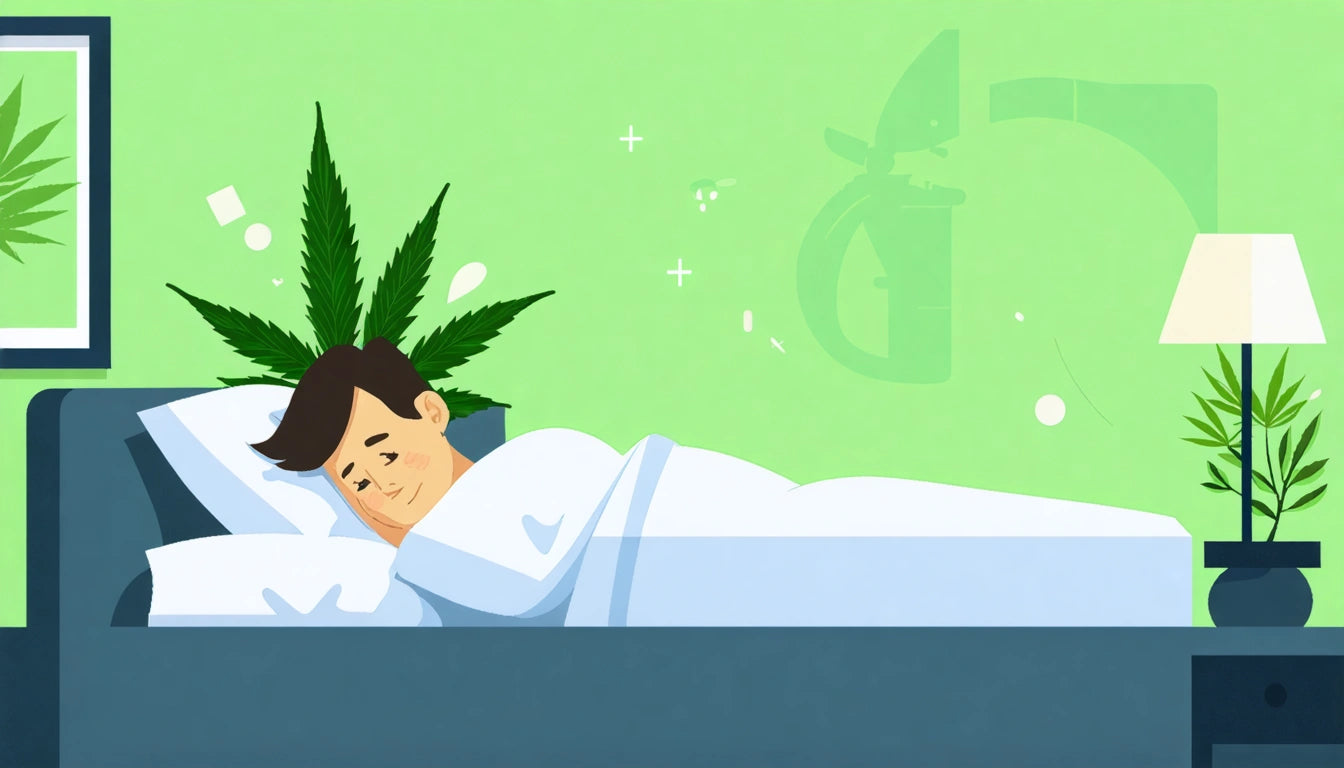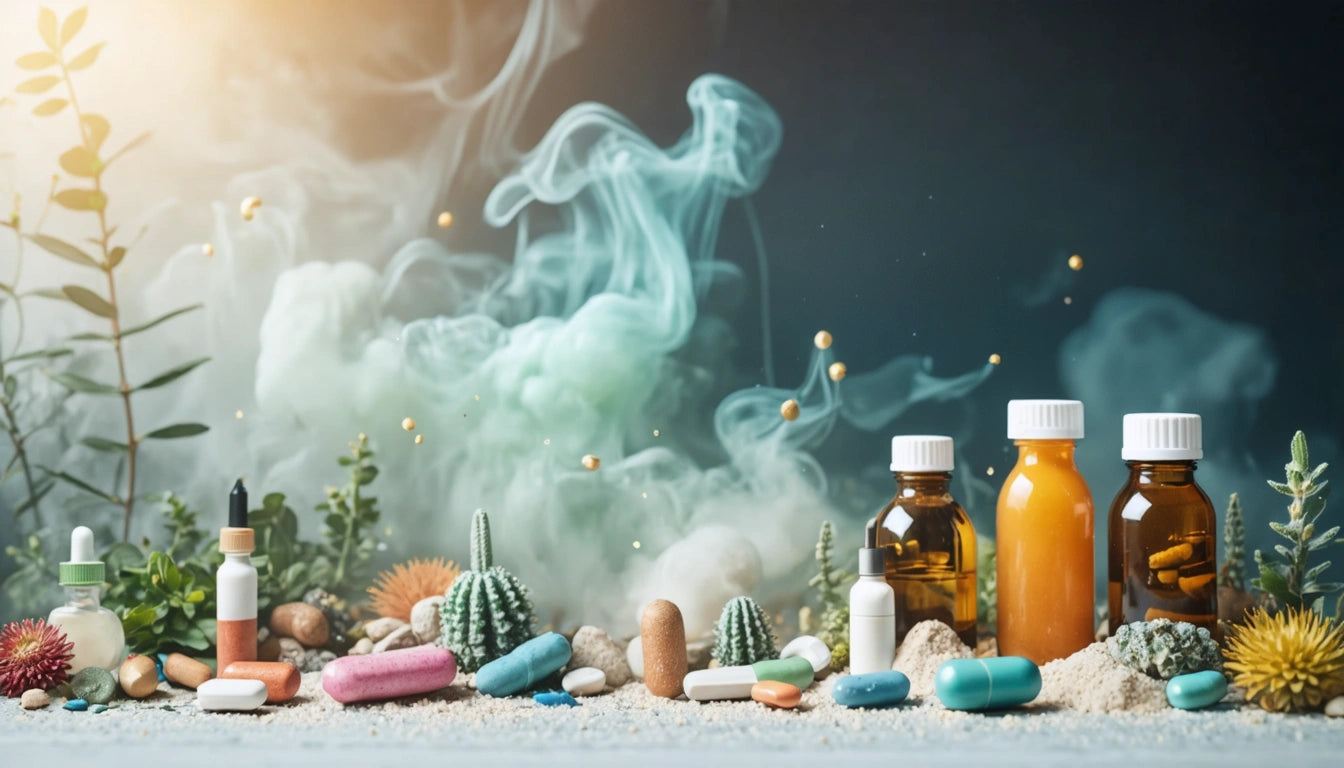Table of Contents
Can You Sleep High and Wake Up High? Exploring the Effects of Going to Bed High
Many cannabis users have experienced going to bed while still feeling the effects of THC, only to wonder if those effects will persist until morning. The question "can you sleep high and wake up high" is common among both new and experienced consumers. This article explores what happens in your body when you sleep after consuming cannabis and whether you can still feel high after waking up.
Understanding Cannabis Metabolism During Sleep
When you consume cannabis, THC enters your bloodstream and begins interacting with your endocannabinoid system. During sleep, your body continues to metabolize THC, breaking it down into metabolites that are eventually eliminated from your system.
Sleep doesn't pause the metabolism of cannabis. In fact, your liver continues processing THC throughout the night, converting it into 11-hydroxy-THC and then into THC-COOH, which is less psychoactive. This ongoing process means that you may still feel high long after consuming, even after sleeping.
Factors Affecting Whether You Wake Up High
Several factors determine whether you'll wake up still feeling high after going to bed under the influence:
- Dosage and potency: Higher doses and more potent products increase the likelihood of waking up high
- Consumption method: Edibles can produce effects that last 8+ hours, potentially carrying over to morning
- Timing: Using cannabis right before bed versus several hours earlier makes a significant difference
- Individual metabolism: Your body's unique processing speed affects how quickly THC clears your system
- Body composition: THC is fat-soluble and can be stored in fat cells, potentially releasing during sleep
For those using cannabis medicinally or recreationally, proper storage is essential to maintain potency. Many users store their products in secure, smell-proof storage bags to preserve freshness and potency, which can affect how you experience cannabis before sleep.
The Science Behind Overnight Cannabis Effects
THC Half-Life and Sleep Duration
THC has a half-life of approximately 1-2 days in occasional users and 5-13 days in frequent users. This means that if you consume cannabis before bed, a significant portion may still be active in your system when you wake up, especially if you sleep for only 6-8 hours.
Sleep Cycles and Cannabis Processing
Cannabis can alter your sleep architecture, potentially reducing REM sleep while increasing deep sleep. These changes to your sleep cycles might affect how your body processes THC overnight and how you feel upon waking.
Managing Morning-After Cannabis Effects
If you wake up still feeling high, there are several strategies that can help you manage these lingering effects:
- Hydrate immediately upon waking to help flush your system
- Consume foods rich in antioxidants and healthy fats
- Light exercise can help accelerate metabolism
- Cold showers may increase alertness
- CBD might help counteract THC's psychoactive effects
Managing your high effectively requires understanding how different approaches affect your body. For those who need to be clear-headed in the morning, it's important to plan consumption accordingly the night before.
Sleep Quality Considerations When Using Cannabis
While cannabis can help some people fall asleep faster, its impact on sleep quality is complex. THC may reduce the time spent in REM sleep, which is crucial for cognitive functions like memory consolidation and learning.
Some users report that what happens when you sleep high includes more vivid dreams when the effects wear off during the night, or a rebound effect of intense dreams after stopping regular use. Others report deeper, more restful sleep with fewer disturbances.
If you're using cannabis primarily for sleep, consider:
- Indica-dominant strains typically produce more sedating effects
- Lower THC and higher CBD ratios may reduce morning grogginess
- Consistent timing and dosing can help establish predictable sleep patterns
Responsible Consumption Strategies for Better Mornings
To minimize the chances of waking up still high and ensure you're at your best the next day, consider these practical approaches:
Timing Your Consumption
If you don't want to wake up high, consume cannabis earlier in the evening, allowing 3-4 hours before sleep for the most intense effects to subside. This is especially important if you have morning responsibilities or need to drive.
Dosage Considerations
Start with lower doses, particularly with edibles, which can have unpredictable and long-lasting effects. Remember that getting too high before bed can lead to uncomfortable morning-after effects.
Legal and Safety Awareness
Remember that being high in public or during travel may have legal implications, even in states where cannabis is legal. This includes driving the morning after heavy consumption if you're still experiencing effects.
Understanding how your body processes cannabis during sleep helps you make informed decisions about when and how much to consume. While you can indeed wake up still feeling high after going to bed under the influence, proper timing, dosage control, and knowledge of your own metabolism can help you manage this experience effectively.











Leave a comment
All comments are moderated before being published.
This site is protected by hCaptcha and the hCaptcha Privacy Policy and Terms of Service apply.